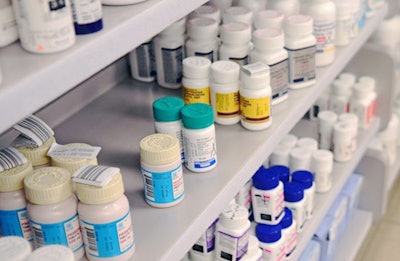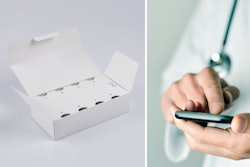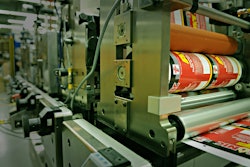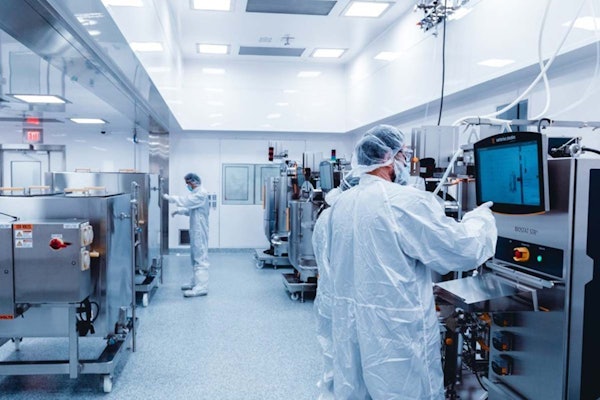The global radio frequency identification (RFID) market for healthcare is expected to soar to a market worth of nearly $4.9 billion by 2022, according to Grand View Research. Behind the explosive growth: the value and efficiency RFID technology promises to bring to healthcare organizations and the added level of security and safety it promises to bring to patients.
RFID represents a broad category encompassing many types of smart labels. According to Marsha Frydrychowski, who leads marketing efforts for label manufacturer Resource Label Group, the technology offers “potentially limitless applications for driving accuracy and value for the healthcare industry. As hospitals, labs and entire supply chains adopt RFID technologies, they become smarter. They are able to track and trace every blood sample or pallet of medication. They have real-time visibility into inventory. They’re able to monitor the temperature of heat-sensitive drugs throughout the supply chain. In the end, smart labeling provides another layer of visibility, efficiency and, ultimately, patient safety to the healthcare industry.”
RFID labeling can drive value for hospitals through diagnostic testing, movement of samples and pharmaceuticals, medication dispensing and patient care. Smart labeling, says Frydrychowski, “could benefit the entire healthcare industry — every healthcare organization from diagnostics labs to primary care offices to the pharmaceutical supply chain could benefit from end-to-end traceability, improved productivity and better inventory management.”
RFID could also address the critical issue of medical errors, that according to recent Mayo Clinic research, represent the third-leading cause of death in the U.S. Here, RFID could engineer greater process accuracy. Smart label technology that tracks and traces pharmaceuticals and blood samples throughout the hospital could ensure that every patient receives the right diagnosis and the right medication, without fail.
How would that work? Each RFID tag has a unique identification number, which would be assigned to a particular product and input into the hospital’s database, making it difficult to duplicate. And because some RFID tags can be read as quickly as 700 products per second, the hospital would gain accuracy without losing productivity.
When all medications are RFID-tagged, a nurse or doctor could quickly read the tag, verify the authenticity of the product and determine whether it’s being dispensed to the right patient. Beyond the primary goal of preventing patient harm, secure RFID authentication can also fight counterfeit drugs.
‘Smart cabinets’ to improve hospital inventory management
According to a recent Cardinal Health survey, more than three-quarters of hospital staff still rely on inefficient, manual supply chain management and many respondents rated their visibility into inventory as low. More than half of hospital administrators cited cost management as the key to their organization’s success.
Automating inventory tracking with smart labels and smart cabinets not only streamlines in-hospital supply chain management but could also help hospitals save money.
In practice, for example, the moment a medication or product is brought into the hospital, it is tagged with an RFID smart label and put into the hospital’s database. Products are then placed in smart cabinets, which sync with the hospital’s inventory management system. When authorized personnel go to retrieve a product, they can immediately locate in which cabinet and on which shelf the product is. The reader will let them know whether the product they took is the oldest available product to ensure products get used before they expire. Because the smart cabinets keep a real-time inventory count, fewer labor hours are spent manually counting inventory, re-ordering products and managing expired and recalled products.
Frydrychowski believes this change to inventory management can have “huge budget ramifications.” She points to this example: After implementing RFID tracking, Adventist Health White Memorial in Los Angeles reduced their manual inventory counting time by 67% and saved an estimated $120,000 per year by using products prior to expiration.
When RFID first emerged as a track-and-trace option, it received considerable attention, but its costs and limitations limited its use. Frydrychowski sees that changing. “While we’re at the infancy of healthcare and pharmaceutical applications for smart labeling, smart labeling itself is a mature technology. RFID technology is ready today for healthcare organizations to plug into their existing processes to drive productivity, reliability and savings.”
She points out that using the technology requires the RFID tags, information processing system, readers and software to work in tandem to achieve goals such as real-time inventory tracking or a more accurate authentication process.
[Editor's note: This article originally ran on Healthcare Packaging on Feb. 4, 2019.]






















